First-time visits to the dentist can be daunting for children. While finding a suitable dentist for your little one is essential to making this experience as positive as possible, there are some things that you as a parent can do to support your child during this essential procedure.
At Apple Dental, we encourage parents to teach their children about the importance of good dental health from a very early age. This can be as simple as teaching them how to brush and floss their teeth and taking them to their dentist check-up every 6 months.
As your children grow older, they could experience dental problems such as improper growth or missing teeth, or cavities. Practising good dental health can help prevent most dental problems. Please read on to learn how to help your child form good dental habits for life.
Let’s get started!
Please browse through at your own leisure, or use the handy links below to jump straight to a particular section.
- Importance Of Starting Early
- Your Child’s First Dental Appointment
- Newborns to 2 Years Old
- 2 to 4 Years Old
- 5 to 6 Years Old
- 6 to 12 Years Old
- Early Teens
- General Do’s & Don’ts of Children’s Dental Care
- How Your Family Dentist Can Help
- Dealing with Dental Fear and Anxiety in Children
A few things you can do to ensure good dental health for your children:
- Establish good cleaning habits from a very young age
- Help them feel comfortable at dentist appointments
- Talk to them about the importance of good dental health
Good dental health is crucial from the very start because ‘baby teeth’ are very important for the healthy development of our one set of adult teeth. In this complete guide, you’ll learn some dental care tips to ensure you’re giving your children the best care possible.
The Importance of Starting Early and Looking After Your Children’s Teeth
Visits to the dentist should begin at 18 months to 2 years old and occur every 6 months after. Why so early, you ask? Well, the initial stages of teeth development in children are essential to the growth and health of their smile. Attending dental appointments will make sure everything is normal and the teeth are coming in as they should. Another benefit of introducing your child to the dentist early on is to help them establish a familiarity and a positive relationship with their dentist.
Your Child’s First Dentist Appointment
Here are 3 reasons your child’s first dentist appointment is so important:
- Establishes Trust – This is the first dentist your child will meet, so you want to be sure they have a pleasant experience. As a parent, you can do some background research and even meet the dentist in person before introducing them to your little one.
- Good for Parents – This is also a great time for parents to learn more about dental health themselves. You’ll learn ways you can help your children practice good habits.
- Makes Sure Everything’s in Order – Another reason first-time visits are important is because they’re a way to make sure teeth are growing normally. If the dentist notices anything wrong with your child’s dental health, they will be able to find a solution and prevent the problem from becoming worse.
Your child’s first dental visit should occur around their first birthday. Even if their teeth haven’t grown in yet, this is a good time to introduce them to dentist appointments and show them that they are not scary.
Breaking Down Parent Responsibilities By Age
Are you unsure of how to look after children’s teeth? Here is a breakdown of your responsibilities as a parent by age.
Newborns to 2 Years Old
Dental care for babies cannot be overlooked. Even though their teeth are not fully grown. there are still important measures that should be taken to ensure good oral health. Here are a few tips:
Wipe gums every day with a damp piece of gauze before teeth have erupted
- It can be detrimental for your baby to be too dependent on a dummy. When children use it too much or for too long it can cause the teeth to grow improperly.
- When your babies’ teeth begin to show (at about 6-9months), they may experience pain or discomfort. Cold teething rings can help ease this pain and are a great alternative to a dummy.
- At this age, you should begin to brush their teeth with a small toothbrush. You can start to use a small amount of children’s toothpaste at 12-18 months. Brushing your child’s teeth can be challenging – it is important to persist. If you are having difficulty brushing your child’s teeth, ask your dentist for tips and tricks! Flossing doesn’t have to begin until they are around 2 years old.
- Make sure anything that goes into your baby’s mouth is clean. Boiling a washed dummy for 5 minutes will effectively kill any germs that could potentially make your baby sick. Try to avoid the temptation to clean your baby’s dummy in your own mouth as your saliva contains bacteria that could lead to an increased chance of decay in your baby’s teeth.
2 to 4 Years Old
By age 3, your child should have all 20 baby teeth. By now, you should be flossing their teeth regularly. Dental care for toddlers paired with a healthy diet is essential to avoid cavities or tooth decay.
Here are some things you need to avoid at this age:
- Sugary food and drinks
- Frequent snacking
- Sticky foods that get stuck on teeth for long periods of time
- Acidic drinks (juices, soft drinks)
- Never dip dummies in sweet substances like honey
Some things you should do? Give your child tap water, not bottled water, so that they can gain the benefits of fluoride. Give plenty of calcium-rich foods. You should also keep an eye on how your child’s teeth are developing. Be especially aware of persistent asymmetry. It is important to discourage thumb sucking as much as possible as your child gets older, as this can lead to damage.
5 to 6 Years Old
This is the age where primary teeth begin to fall out and adult teeth begin to make an appearance. It is important you’re taking your child to their regular dentist appointments so that we can be sure everything is healthy and normal.
As mentioned previously, thumb-sucking habits really need to stop by this age or orthodontic problems will be created. As always, if your child is playing a contact sport, be sure they always wear a mouthguard to protect their teeth from trauma. This becomes even more important now that they are getting their adult teeth.
6 to 12 Years Old
You should be involved with your children’s oral hygiene routines until they are at least 8 years old. As the parent, you should ensure good technique when brushing and flossing. As always, regular dental check-ups will pick up any problems with positioning of the new teeth or development of decay. It is always easier on your child to treat any problems early or even preventively.
Early Teens
At this age, your child should be brushing and flossing their teeth twice a day. Research has shown that teenagers have a higher decay rate than younger children. They may be drinking more sugary/acidic drinks and eating more fast food.
Here are a few tips your teenager should follow to ensure a healthy, beautiful smile:
- Drink plenty of water.
- Don’t snack on sugary foods; instead, choose more tooth-friendly options such as carrots, yoghurt, and apples.
- If they have braces, good oral hygiene is even more important than ever, as braces can collect more food particles and plaque, and poor oral hygiene can lead to unsightly white patches on the teeth once the braces are removed.
- Attend a regular dental check-up every 6 months. The dentist may start to take small xrays to check in between your teenager’s teeth now that most of the adult teeth are present.
General Do’s & Don’ts of Children’s Dental Care
Dental hygiene for kids is so important. As parents, it is our responsibility to teach them the importance of practising good oral hygiene habits. Here are some do’s and don’ts for children’s dental care.
Do:
- Brush and floss with your children as soon as they’re able. Parents need to practice doing this even if teeth are not fully grown. Doing this from a young age gets them used to the idea of regular brushing and flossing and forms a life-long habit.
- Floss daily. Even if they don’t have all their adult teeth, teaching healthy flossing habits from a young age encourages them to continue this practice as years go by. Importantly, baby teeth need to be kept healthy as they play a major role in development of healthy adult teeth.
- Talk to your dentist as much as needed. If you have questions or need tips on how to make brushing and flossing with young children easier at home, just ask!
Don’t:
• Overlook the importance of practising good dental health from a young age. We cannot stress this enough, as it can lead to serious issues including pain, infection, or even tooth loss.
How Your Family Dentist Can Help
At Apple Dental, we provide a wide range of dental treatments for families. We try to make your child’s dental visits fun and positive so that they are happy to come back again and again!
The right dentist for your child depends on several factors, including:
- Schedule
- Pricing
- Location
But the most important thing is that your child’s dentist is used to working with children and knows how to effectively and respectfully communicate with your child. If your child has fears about dental visits, it’s crucial to find a dentist they can feel comfortable with. At Apple we aim to build a lasting relationship with you and your family. Building a level of familiarity and trust will make going to the dentist a positive experience for your child – and for you! Here are a few signs a dentist may be a good match for your child:
- Friendly and patient disposition
- Waiting room activities
- Entertainment in surgery
- The Dentist is interested in educating you and your child and willing to engage with you and your concerns
Once you have found the right dentist for you and your family, making and attending regular appointments is easy.
Regular dental examinations will catch problems early. If you rarely visit a dentist, when you do go because of pain or a problem, treatment will necessarily be more invasive and complicated. Most fillings, which in turn can lead to treatment such as crowns and/or root canals, can be prevented with good at home practices and regular check-ups.
Here are a few reasons why we are so confident that our team is the best in the business:
- Every dentist is highly qualified
- We make it our priority to give patients the highest standard of care and service
- We make children’s dental care as easy and comfortable as possible
- Friendly customer service
Don’t overlook the importance of children’s dentistry. Give us a call today to learn more about our services and why our kids’ dentists are the best around!
Dealing with Dental Fear and Anxiety in Children
Feelings of fear or anxiety are common among children visiting the dentist. It can be difficult for your child, you as a parent, as well as your dentist. Establishing a good relationship with your dentist at a young age will help immensely.
If your child is having these feelings when visiting their dentist, speak with your dentist about mild anaesthetics, sedation, or subscription medication. These can help relax patients of all ages. Your dentist will be able to advise you on the best options for treatment.
Contact Us
The most valuable gifts you can give your children are the tools to lead happy and healthy lives.
At Apple Dental, we take pride in being caring, gentle, and affordable. We are a family-oriented service and children’s dentist you can trust; we have been taking care of family dental needs since 2004. We are conveniently located at Newstead near the Gasworks precinct.
Get the best care for your kid’s teeth. Contact us today!


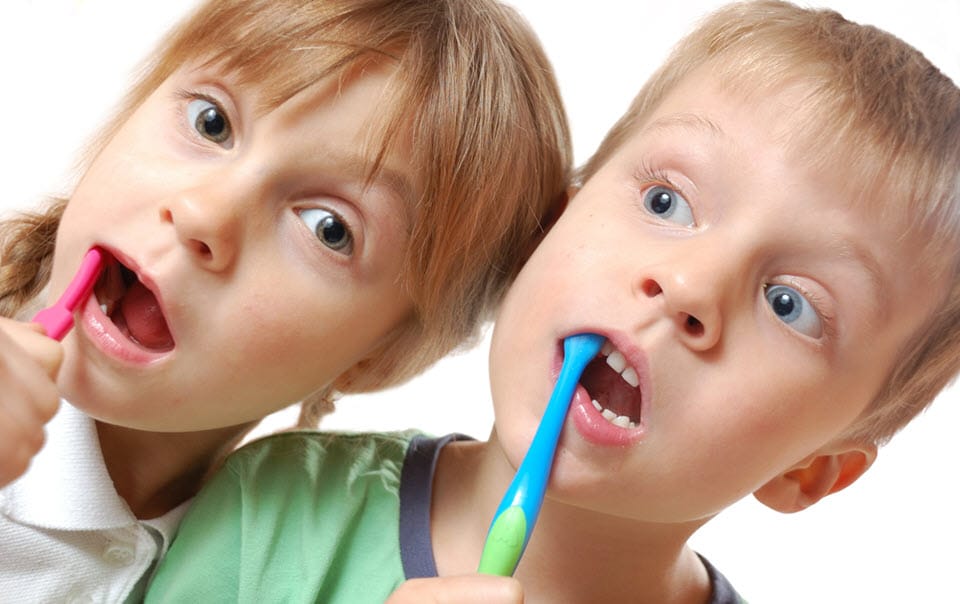
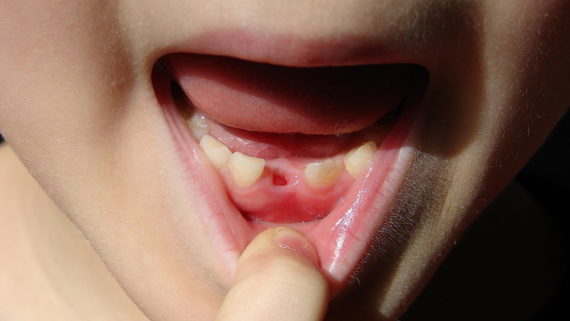
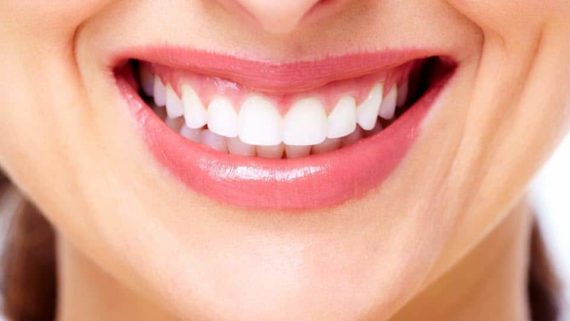

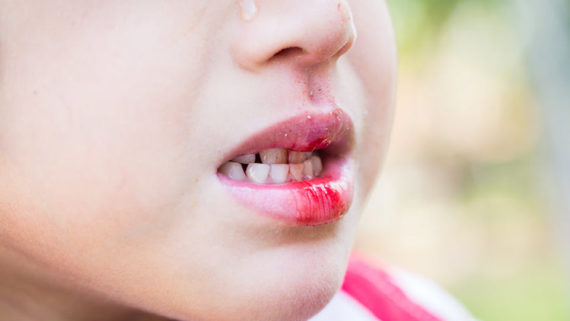
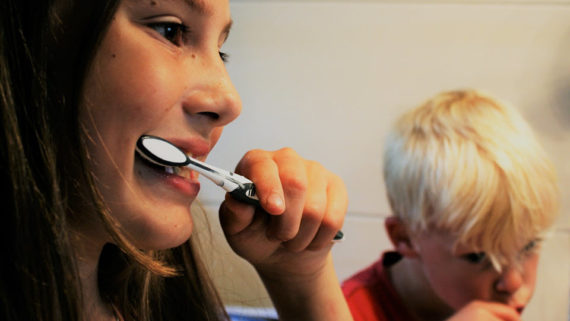


Comments
No comment yet.